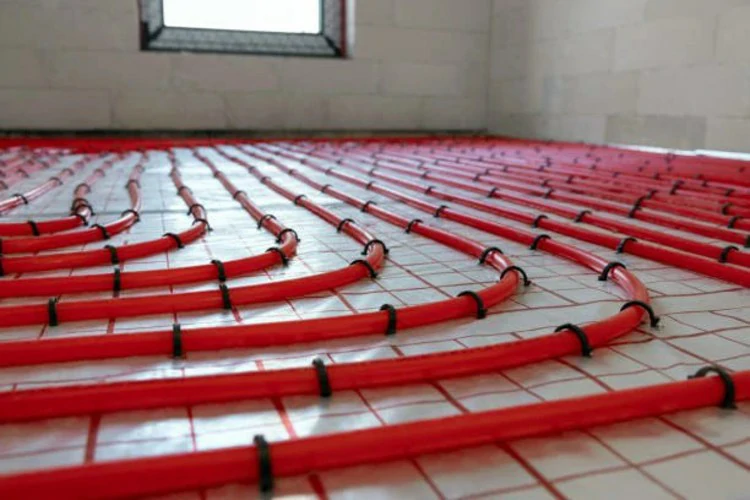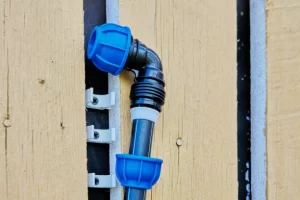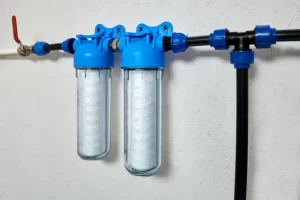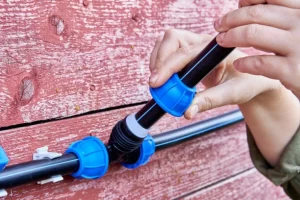When it comes to plumbing systems, two popular choices for piping material are PEX (cross-linked polyethylene) and PVC (polyvinyl chloride). Each material has its own set of advantages and drawbacks. Let’s explore the differences between PEX pipes and PVC pipe to help you make an informed decision for your next plumbing project.
Material Composition
1. PEX Pipe:
PEX pipes is made from cross-linked polyethylene, a flexible and durable plastic material. It is known for its resistance to corrosion, scale buildup, and chemical reactions, making it suitable for both hot and cold water supply lines.
2. PVC Pipeline:
PVC pipe is made from polyvinyl chloride resin, a rigid and durable thermoplastic material. While PVC pipe is also resistant to corrosion, it is not suitable for hot water applications and may become brittle over time when exposed to high temperatures.
Flexibility and Ease of Installation
1. PEX Pipe:
PEX pipes is highly flexible and can be bent and curved without the need for additional fittings. This makes installation easier and faster, especially in tight spaces or around obstacles. PEX pipes also requires fewer fittings and joints, reducing the risk of leaks and improving overall system efficiency.
2. PVC Pipeline:
PVC plumbing is rigid and less flexible than PEX pipes, which can make installation more challenging, especially in cramped or irregularly shaped spaces. It requires precise measurements and careful planning to ensure proper fitment and alignment of fittings and joints.
Temperature and Pressure Ratings
1. PEX Pipe:
PEX pipes has high temperature and pressure ratings, making it suitable for a wide range of plumbing applications, including hot water supply lines, radiant floor heating systems, and underground installations. It can withstand temperatures ranging from below freezing to above boiling without degradation.
2. PVC Plumbing:
PVC pipe has lower temperature and pressure ratings compared to PEX pipe. While PVC pipe is suitable for cold water supply lines, irrigation systems, and drainage applications, it is not recommended for use with hot water or high-pressure systems due to its lower temperature and pressure limitations.
Chemical Resistance and Longevity
1. PEX Pipe:
PEX pipe is resistant to corrosion, scale buildup, and chemical reactions, making it highly durable and long-lasting. It has a lifespan of up to 50 years or more when properly installed and maintained, providing reliable performance and peace of mind for homeowners and contractors alike.
2. PVC Piping:
PVC pipe is also resistant to corrosion and chemical reactions, but it may become brittle over time when exposed to sunlight, extreme temperatures, or certain chemicals. While PVC pipe has a relatively long lifespan, it may require replacement sooner than PEX pipes in harsh environmental conditions.
Conclusion
Both PEX pipes and PVC pipe have their own unique benefits and drawbacks, making them suitable for different plumbing applications. While PEX pipes offers flexibility, ease of installation, and high temperature and pressure ratings, PVC pipe provides rigidity, chemical resistance, and affordability. Ultimately, the choice between PEX and PVC will depend on factors such as project requirements, budget constraints, and local building codes.
IFAN is a Chinese manufacturer of plastic pipes, fittings and valves with 30 years of experience. If you are interested in IFAN copper fittings, copper valves, plastic pipes and fittings, please contact us. IFAN offers you a variety of standard pipes to meet your specific needs. Click below to learn more about IFAN’s wide range of affordable and cost-effective valve products and piping system related products.
We will reply your email or fax within 24 hours.
You can call us at any time if there is any question on our production.
For more information,pls visit our webside https://pipefittingpro.com/
Pls Mailto: [email protected]
Whatsapp: + 86 19857948982














Recent Comments